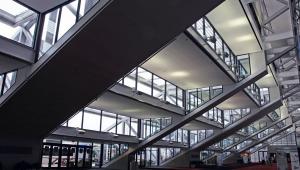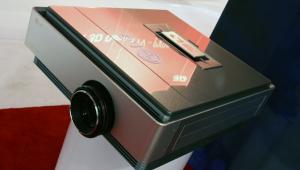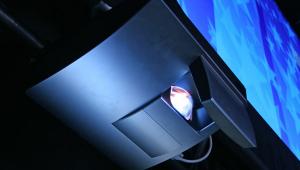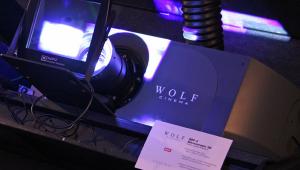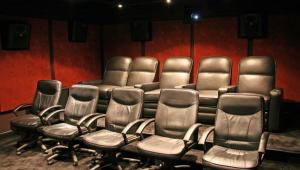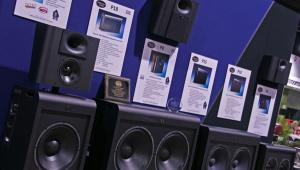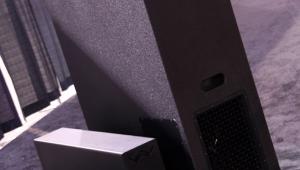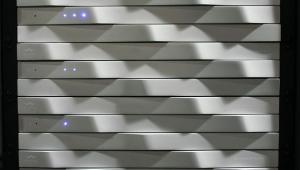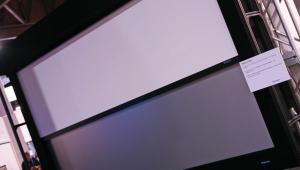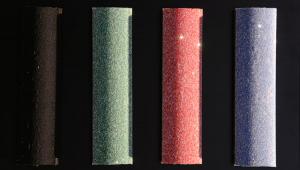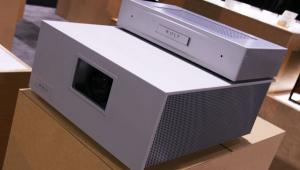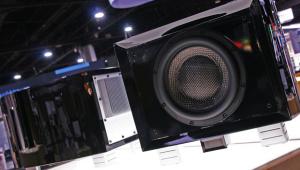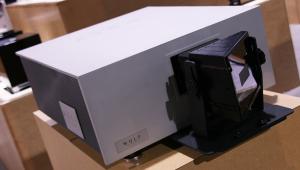Epson Does LCOS—Or Something

There are three new Epson projectors based on this chip, all of them designated as 3LCD Reflective. (LCOS, and Epson's new variant as well, is LCD technology, but it is reflective whereas conventional LCD is transmissive).
The three models, which all look alike cosmetically except for the case color, are the 61000 ($7000, black), 31000 ($4500, black), and 21000 ($3300, white). All are scheduled to ship by the end of 2010. Features include a working light output of about 750 lumens (when properly calibrated), support for anamorphic lenses, a motorized lens with a lens memory feature, and the full adjustability Epson projectors are well known for. In addition, the 6100 and 3100, designated as Pro models, include an extra lamp (claimed lamp life is 5000 hours) and a guarantee of no dead pixels.
But Epson has not forgotten LCD. The new PC9700UB, at $3100, is a cosmetically identical successor to the 9500, but has undergone significant upgrades judging by the image on display at the demo. In fact, both the LCD and 3LCD Reflective projectors were standouts (apart from the use of frame interpolation in the 3100 demo; it's defeatable, though). With size taken into account (some of the more upmarket projectors at the show used larger screens), I have not so far seen a better demo at this CEDIA, though there are still a few more for me to see. The 9700 was used on a 96" wide screen, the 31000 screen was wider when used with 2.35:1 material (the width was obtained via a memorized lens shift, refocus, and zoom; no anamorphic lens was used).
All of these new Epson projectors are 2D only. The screens in both demos were Stewart Studiotek 130s.
- Log in or register to post comments
